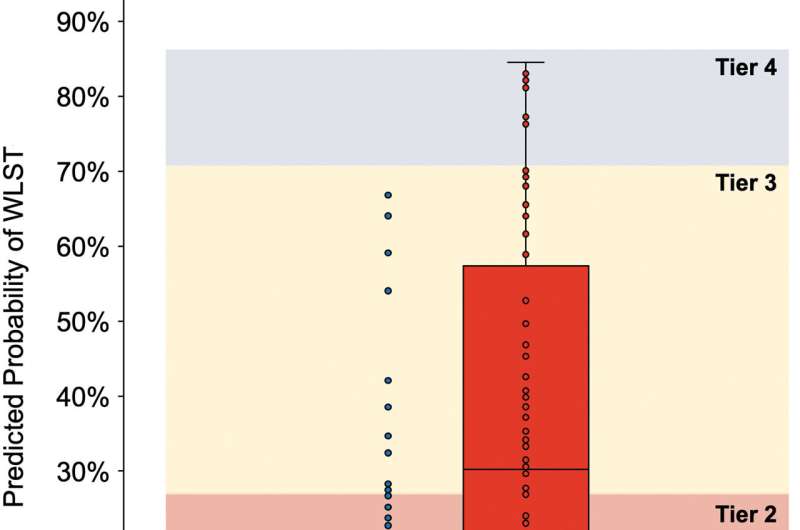This article has been reviewed according to Science X's editorial process and policies. Editors have highlighted the following attributes while ensuring the content's credibility:
fact-checked
peer-reviewed publication
trusted source
proofread
New study shows recovery potential in patients with traumatic brain injury

A new study in the Journal of Neurotrauma found that more than 30% of patients with traumatic brain injury (TBI) for whom withdrawal of life sustaining treatment (WLST) was not performed recovered at least partial independence.
Yelena Bodien, PhD, from Massachusetts Hospital and Harvard Medical School, and coauthors, cautioned that death or severe disability is a common outcome when the probability of WLST is high. The authors investigated the potential for survival and recovery of independence after acute TBI in patients who died after WLST. They compared patients with acute TBI who died after WLST to those with acute TBI for whom WLST was not withdrawn.
"Our results support recent calls for a cautionary approach toward early WLST after acute TBI and suggest that a lifetime in a vegetative state or with lower severe disability is not a common outcome, even after a very serious injury," stated the investigators.
"My congratulations to Dr. Bodien and colleagues for this carefully articulated communication. Their findings have important implications for the practice of critical care medicine around the world. Everyone who is involved in the care of patients with acute 'severe' traumatic brain injury should read this article carefully," says David L. Brody, MD, PhD, Editor-in-Chief of Journal of Neurotrauma.
More information: William R. Sanders et al, Recovery Potential in Patients Who Died After Withdrawal of Life-Sustaining Treatment: A TRACK-TBI Propensity Score Analysis, Journal of Neurotrauma (2024). DOI: 10.1089/neu.2024.0014

















